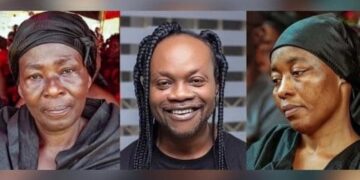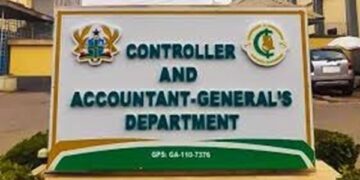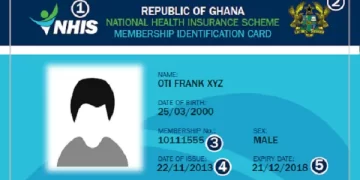Francis-Xavier Kojo Sosu, the Member of Parliament (MP) for Madina in the Greater Accra Region for the National Democratic Congress (NDC), has deemed regrettable the standards by which voters have recently evaluated the work of MPs.
He claimed that the electorate evaluated MPs on the amount of development projects their representatives in Parliament were able to carry out in their constituencies, rather than on their primary duty of passing laws.
It was not the responsibility of Members of Parliament to build roads or initiate capital-intensive infrastructure projects, thus he urged for increased public involvement to help alter that image.
Visit
Mr. Sosu made this statement at a training session for University of Professional Studies, Accra (UPSA) student parliamentarians held at Parliament House by the Department of Public Safety Engagement of Parliament.
The purpose of the student MPs’ visit to the House was to gain firsthand knowledge of how Parliament operates and to explore ways in which they could influence policy indirectly.
The representative for Madina clarified that, instead, the provision of infrastructure development, including roads, schools, and hospitals, among other things, in constituencies was the responsibility of the federal government and local legislatures.
“MPs don’t have the financial muscle to construct roads and undertake major projects,” he said.
“But if the only reason why you will be voting for a particular candidate is based on money or who attends a church harvest, then you have lost it,” he said.
Read Also:WORLD DISABILITY DAY: Leaving No One Behind, Fiction Or Reality In Ghana.
He claimed that this would lessen the tendency of heavily depending on outside experts to oversee local development projects.
Janet Frimpong, a Principal Assistant Clerk and Head of Infrastructure and Security Cluster, gave the students a tour of all 31 committees in Parliament and explained how bills referred to them are handled.
Mrs. Frimpong stated that the Standing Orders governed the activities of Parliament and that without them, things would be done randomly, citing both Standing Order 155 and Article 103(5) of the Constitution, which require Parliament to form such committees.
She mentioned Order 153, for example, which mandated that each member of Parliament be a member of at least one committee.
She informed the students that the Minority members served as ranking members on all committees, with the exception of the Public Accounts and Subsidiary Legislation Committees, which were chaired by the Minority.
Past Events
Superintendent (rtd) Effia Tenge, the Director of Public Engagement at Parliament, traced the history of the Ghanaian Parliament from its Westminster-style days to the present. She stated that legislative representation began in 1950, when Ghana was still a British territory known as the Gold Coast.
The governor held all legislative and executive responsibilities, hence the body, then known as the Legislative Council, was completely advisory.



























